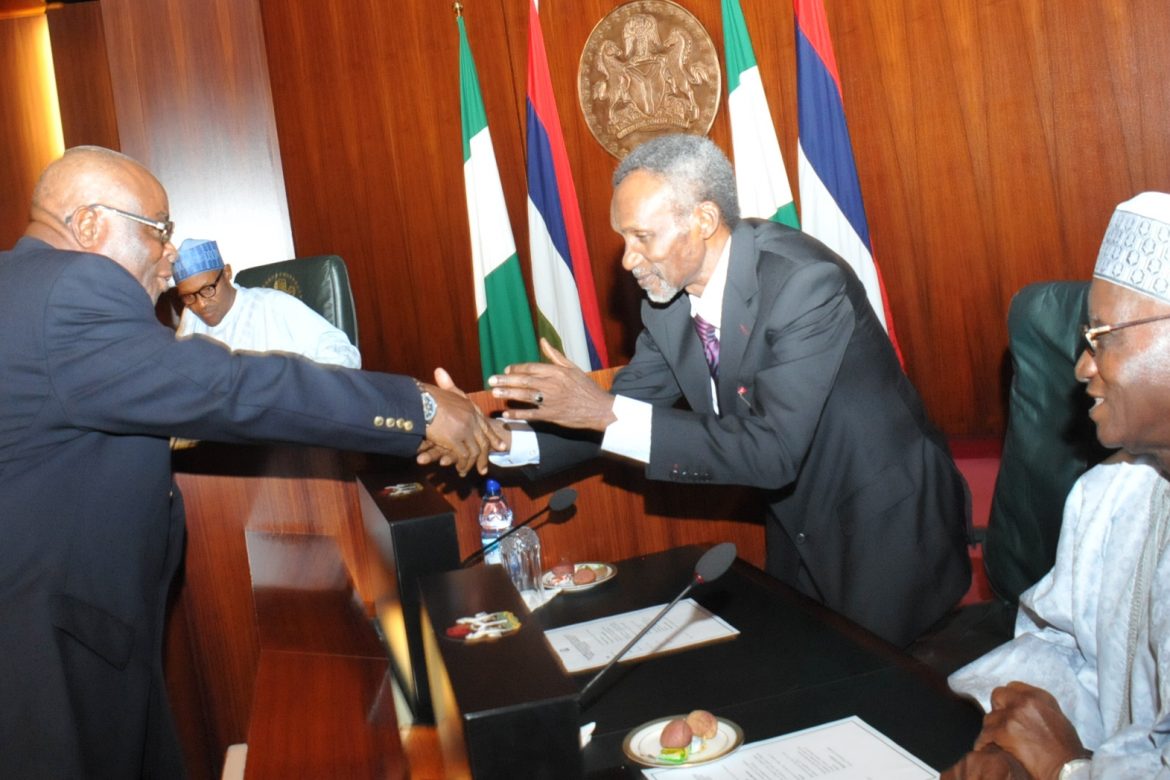This material belongs to: Channels Television.
The Chief Justice of Nigeria, Justice Walter Onnoghen, has received 1,124 corruption cases from various courts across the country.
This followed the directive of the CJN, who is also the Chairman of the National Judicial Council, to the Heads of Court to compile and submit a compendium of all corruption cases being handled by their various jurisdictions.
Justice Onnoghen revealed the figure on Wednesday at the formal inauguration of the Corruption and other Financial Cases Trial Monitoring Committee (COTRIMCO) at the NJC complex in Abuja.
He said the committee was formed as part of the commitment of the judiciary to lend support to the efforts of President Muhammadu Buhari’s administration to rid Nigeria of corruption.
He promised that all aspects of judicial duties would be scrutinised, improved and re-aligned towards reform, hinting that all judicial institutions and Heads of Courts have been advised to provide COTRIMCO with all the necessary information and support to make decisions from informed perspective.
The CJN said that the committee should have been headed by a former President of the Court of Appeal, Justice Ayo Salami, who withdrew on personal ground.
He was, however, hopeful that the respected judicial officer would be available for other national judicial assignments in the near future.
He also paid tributes to the members of COTRIMCO for accepting to serve their fatherland through the assignment, despite their numerous other engagements.
Justice Onnoghen noted that the members were selected purely on merit and recognition of their track records of service to their fatherland, as well as contributions to the development of the country’s law and jurisprudence.
He urged them to come up with strategies that would help eliminate the delays and its attendant effects on the speedy disposal of corruption cases, saying it was one of the ways they could justify the high level of public confidence reposed in the committee.
He also advised the prosecution and defence counsel to shun all unethical antics employed to delay hearing and determination of corruption cases as Heads of Courts have been directed to report such counsel.
The CJN warned that such counsel would be referred to the Legal Practitioners Privileges Committee (in the case of a Senior Advocate of Nigeria) or the Legal Practitioners Disciplinary Committee (in the case of other legal practitioners) for staff disciplinary measures.
In his response, chairman of the committee, Justice Suleiman Galadima, thanked the Chief Justice for inviting them to serve the nation.
He also assured him that the members would bring to bear their wealth of experiences to ensure the purpose for which the committee was set up, adding that it would strictly adhere to the terms of reference.
This was contained in a statement signed by the NJC Director of Information, Mr Soji Oye.


